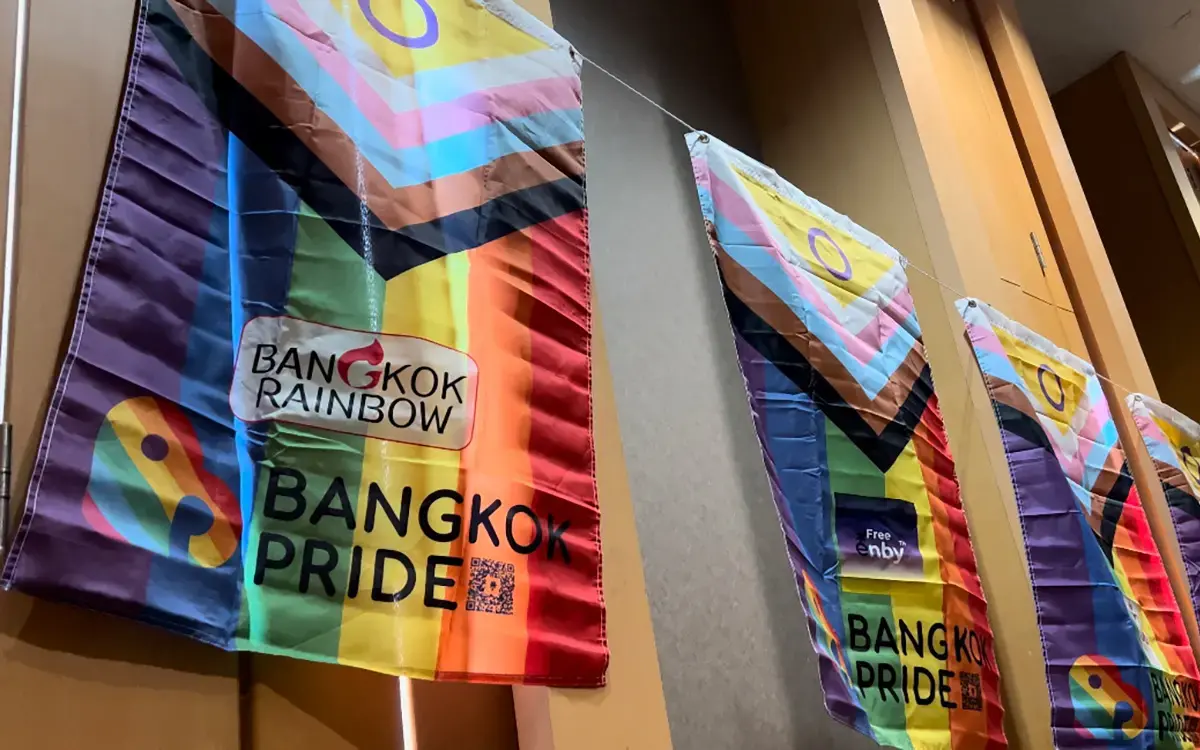
Trans people cannot legally change gender identity on ID cards, forms
Thailand, renowned for its welcoming travel destination for the queer community and its embrace of gender diversity, presents a paradox for its transgender population. Despite a perception of acceptance, the reality for trans individuals in the country reveals a landscape marked by challenges in gender-affirming care, gender recognition and healthcare access that impacts their overall health.
With two decades of activism under her belt, Nachale Boonyapisomparn, also known as Hua, co-founder of the Thai Transgender Alliance (ThaiTGA), sheds light on the pressure placed upon trans people to conform to societal norms, underscoring the limitations of acceptance within rigid societal structures and expectations, such as meeting certain behaviors and beauty standards.

As a nonprofit journalism organization, we depend on your support to fund more than 170 reporting projects every year on critical global and local issues. Donate any amount today to become a Pulitzer Center Champion and receive exclusive benefits!
“Acceptance still comes back to us still having to fit certain boxes,” Hua said.
A poignant example of this struggle is illustrated by Siwanon Khanvilaikul, who goes by Yok, a trans cabaret performer in Phuket who underwent gender reassignment surgery at 18 yet finds herself marginalized within the healthcare system.
“I feel biased. I am a woman in every way, but why is the final judgment based on that one small title [Mister] in front of my name?” Yok questions, highlighting the frustration of being relegated to a male ward in public hospitals due to outdated bureaucratic classifications as a result of the lack of gender recognition.
Yok cannot change her gender identity and prefix on government and legal documents, such as passports, birth certificates, identification cards and health forms. This inability to modify gender markers contributes to biased treatment within the healthcare system, creating an atmosphere of discomfort, isolation and frustration for trans individuals.
“When I am going in for care, my mental and emotional state is just as important,” said Yok.
Beyond the limited gender recognition, the lack of gender-affirming care further compounds the challenges trans people face in a healthcare setting. Kritima Jemma Samitpol, who goes by Jemma, a supervisor of the Tangerine Clinic, Thailand’s first trans-led community health clinic, emphasizes the dearth of trans-competent healthcare and the reliance on informal sources for medical guidance, such as TikTok, Facebook and friends.
“This is a problem,” Jemma declares, noting the risks posed by misinformation on hormone use within the trans community and emphasizing the need for accessible and affordable gender-affirming care to mitigate these risks.
While government-funded public hospitals are an affordable and accessible option due to Thailand’s Universal Health Coverage program implemented in 2002, providing virtually cost-free basic health prevention, screening and treatment, gender-affirming care is not mandated or covered under the current UHC plan. No gender-affirming care in public hospitals has put Yok at risk of discrimination and bias like misgendering. There are LGBTQ-friendly private hospitals and clinics, but they are predominantly concentrated in metropolitan areas, such as Bangkok, Phuket, Pattaya and Chiang Mai, and are not a part of UHC. Trans individuals in Thailand are left with a challenging choice between accessible and affordable but non-gender-affirming public hospitals, potentially laden with discrimination and stigma or LGBTQ-friendly private hospitals and clinics in larger cities that come with a higher price tag.
Despite these challenges, signs of progress emerge. The Tangerine Clinic stands as a beacon of hope, providing comprehensive and affordable gender-affirming care with a “come as you are” motto, encouraging the trans community to utilize health services and manage their well-being effectively. Jemma shared that the clinic continues to engage in capacity building for 11 community-based health clinics throughout Thailand, aiming to replicate the trans health service model of Tangerine Clinic.
The clinic’s collaborative research efforts with the Ministry of Public Health is a push towards integrating gender-affirming care into the national UHC program.
“There is a clear progress happening,” Jemma said.
The fight for trans rights extends beyond healthcare, with advocacy efforts targeting legal recognition and broader civil liberties. ThaiTGA’s campaign for legal gender recognition and allied causes, including same-sex equality and decriminalizing sex work, reflects a broader struggle for human rights and social justice.
“Gender recognition is a human right needed for advancing healthcare and ultimately achieving gender-affirming care,” Hua emphasized.
In the face of entrenched discrimination and institutional barriers, the resilience of individuals like Hua, Jemma and Yok serves as a testament to the ongoing battle for trans rights in Thailand.
“We must fight,” they affirm, embodying a hopeful narrative of progress toward a more inclusive and equitable society.









